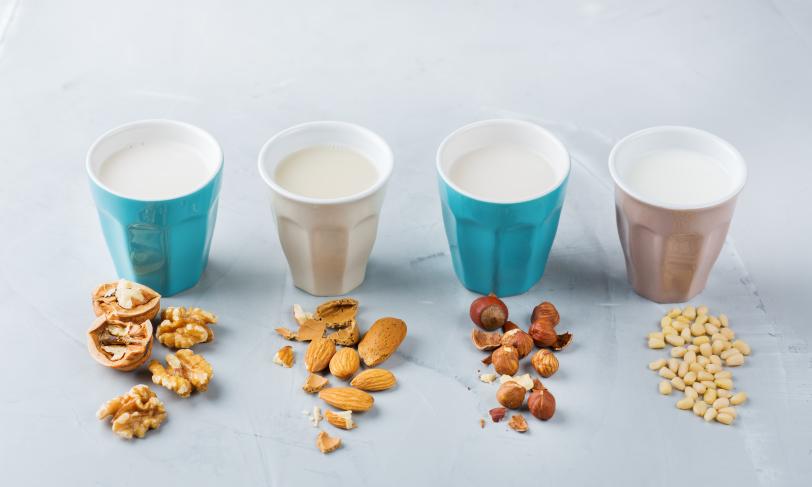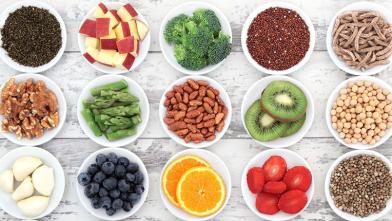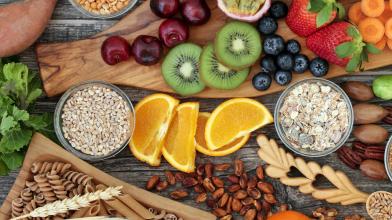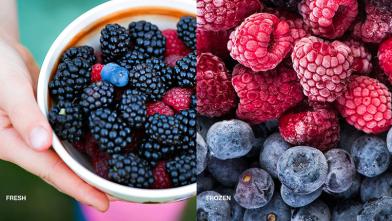
Protein in Milks
Traditional cow’s milk has a healthy balance of naturally occurring carbohydrates, fat, protein, and essential vitamins and minerals, like vitamin D and calcium.
While protein levels vary from one plant-based milk to another, the protein in soy and pea milk is comparable to cow’s milk, containing anywhere from 6–10 grams per cup.
Other milk alternatives including oat, rice, almond, and cashew may contain less protein per cup. Choose any plant-based milk you prefer and meet your daily protein needs by incorporating a variety of nutrient-dense foods into your diet throughout the day.
Comparing the Nutritional Benefits of Plant-Based Milks
Non-dairy milks may offer additional nutritional benefits. Many are fortified to contain calcium, vitamin A, and vitamin D. Each may also offer unique nutritional benefits.
Almond and cashew milk are rich in vitamin E, an anti-inflammatory antioxidant that is beneficial for eye health. Hemp milk contains heart healthy omega-3 fats.
Oat milk contains more soluble fiber compared to other plant-based milk options, which may be beneficial for digestion. For consumers with nut allergies, oat, rice, and hemp milks could be safe options.
Diabetes and Non-Dairy Milks
Health care professionals agree that if you have diabetes, you should choose the unsweetened versions of plant-based milk. The added sugars in flavored versions, like vanilla or chocolate, may contain more carbohydrates than the unflavored version, which could make it harder to control blood glucose (blood sugar) levels.
The overall carbohydrate content of some plant-based milks, such as rice and oat milk, may be higher than other plant-based options. Be sure to read the Nutrition Facts label for total carbohydrates and added sugars. Aim to consume plant-based milks which contain 12–15 grams of carbohydrate per cup.
Overall, consider your individual dietary needs and preferences when choosing plant-based milks.
Recipes Featuring Plant-Based Milks
Plant-based milks can also be enjoyed in a variety of diabetes-friendly recipes. Here are a few of our favorites:

Blueberry Almond Pancakes
High fiber, lower in carbs, gluten-free, no added sugar, and high in protein—these are not your average pancakes!
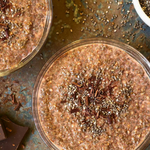
Chocolate Peanut Butter Chia Seed Pudding
This pudding is decadent enough to be a fancy dessert for two, or light enough for breakfast or a midday snack.

Almond Joy Hot Chocolate
Almond milk is the star of the show for this sweet and creamy hot chocolate that’s perfect for a chilly day.
